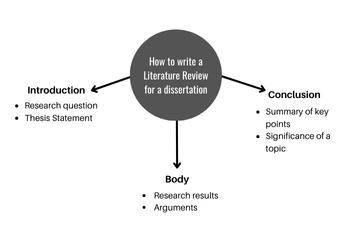How to write a literature review for a dissertation
Tagged: Computer Science
The literature review will most likely be the first section of your dissertation body. It usually accounts for 10% to 15% of the whole word count of the dissertation (so for a 10,000-word project, you would expect it to be between 1,000 and 1,500 words long). This is the section where you investigate previous research on your selected topic and discover knowledge gaps.
Your primary objectives here are to:
- Identify the important facts regarding the topic you've selected.
- Evaluate and analyze the existing research's merits and faults.
- Identify an area of the research lacking in this issue so that you may fill it with your dissertation.
In this study guide, we will break down each of these goals to ensure you can complete them all.
Establishing the facts
Your literature review should clearly convey all essential facts to your investigation. This sets the stage for the study you will do later and informs the reader of all they need to know to recognize the worth of your research.
The first stage is to read widely in your study field and investigate any subject that may be closely linked to it. A competent literature review will deal with a variety of text types (books, journal articles, academic websites and so on).
As you work on presenting information, aim to cross off the 'who/what/when/where/how/why' questions. This is an excellent approach to prepare yourself to criticize the study, which will be necessary when you get to the assessment step (which we will cover next).
Consider utilizing subheadings to assist in arranging your thoughts. You may arrange them in a variety of ways based on what makes the most sense for your theme. As an example:
- Chronologically - where the flow depicts your subject's history.
- By topic - a framework based on primary ideas and concepts discovered when reading
- By sector - this might be a subset of a subject, such as scientific or political viewpoints.
- Through the growth of ideas - this is frequently done when substantial recent advancement exists.

Evaluation and criticism
Now that you've researched and organized all of the current knowledge, it's time to get critical.
If you followed the instructions while gathering your data, you would have already begun to consider the 'who/what/when/where/how/why' questions for each element of the study. Asking these questions and expanding on the responses is how independent critique is generated. This is critical for achieving high grades, so prioritize it.
Not sure where to begin when analyzing someone else's work? Try asking and writing down your responses to the following questions concerning research you've extensively investigated.
- What assumptions does the research make?
- What approaches are employed? Is this study approach flawed or harmful in any way?
- Is the author a subject matter expert? Has anyone disputed their findings?
- What is the research's purpose? Is there any prejudice among the researchers?
- How current is the research?
- What are their conclusions? Do you concur with them?
There is no such thing as a flawless study. That is, if you ask these questions of every piece of research you come across, you can determine its limits.
But we're not only searching for weaknesses! It is equally crucial to be able to identify a study's strengths. Make a note of any good points that come to mind when asking the preceding questions.
It is critical to strike the correct balance between recognizing strengths and addressing drawbacks to balance your argument.
Identifying a unique research question
Although you should have a solid concept of what subject your dissertation will investigate when you draft your research proposal, it is extremely typical for the question to shift significantly or be narrowed down once you have done your literature review. This is because new ideas or points of view will emerge as you go further into the literature.
ConclusionThe conclusion of a literature review should include a short overview of the important themes you have gained from the materials you have read. It should then discuss the question your dissertation will answer and why it needs to be investigated in further depth.

